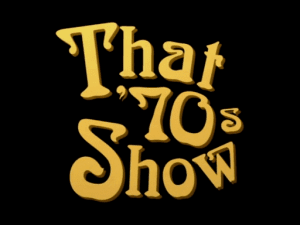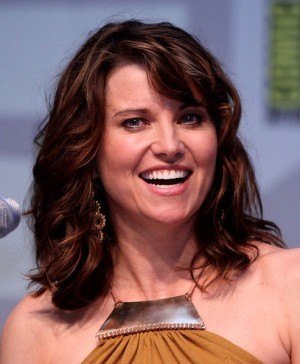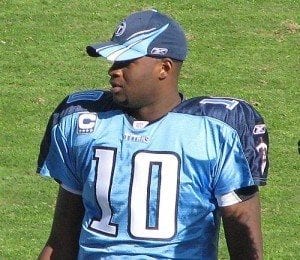
Who should we blame for tabloid media?
After Tuesday’s so-called Casey Anthony verdict and this morning’s sentence, it’s hard to declare anyone a winner or loser, with one exception—Nancy Grace.
Grace, who hosts an eponymous TV show on CNN’s HLN network (formerly CNN Headline News), has been the force behind media coverage of Casey Anthony from the beginning, raising her own profile and boosting ratings.
According to the New York Times, Nancy Grace and HLN were able to turn the case into a major media issue, giving the network an identity and making the courthouse a tourist attraction. The Washington Post confirms the success of Grace’s Casey Anthony coverage, as her show had the largest audience ever on her prime-time show Tuesday after the verdict was announced. During Grace’s live broadcast, HLN had its best ratings performance ever.
Meanwhile, as a serious case gets turned into tabloid fodder, a tabloid is turned into a serious case. News of the World, Rupert Murdoch’s British tabloid, announced its closure today, with Sunday’s edition to be its last.
The tabloid, facing intense pressure from its phone hacking scandal, police bribe allegations, and other accusations, has been in publication since 1843.
While these two cases are very different, they share one thing in common: the media responded to public demand.
In my last blog post, I mentioned that it’s our fault for paying attention to Nancy Grace (or, in this case, News of the World):
Part of the problem is the blurred line between editorials and objective reporting–Nancy Grace doesn’t pretend to be objective and unbiased, but viewers can use her association to CNN to turn her show into a credible source of objective journalism in their eyes. It’s not Nancy Grace’s fault that people listen to her, it’s our fault for not trying to be more rational, more open-minded.
I’m not trying to mourn the death of journalism, I’m not crying about the commercialization of media, the rise of tabloid journalism, none of that. Supply and demand keeps me from that. Instead, I blame the consumers who demand Nancy Grace as their only source of news. People can watch all the Nancy Grace they want, but they need to understand what they are—and are not—watching. When Nancy Grace tries to convince you of Casey Anthony’s guilty, that’s fine. But understand what you’re watching.
Like I wrote, it really comes down to the viewership. Sure, we can complain about Nancy Grace until we’re blue in the face, but as long as there are enough people who want to watch her, why wouldn’t CNN give her a show? The same goes for News of the World—investigators’ actions may have been unethical and illegal, but they were responding to a demand for exclusive, private information.
Nancy Grace and Rebekah Brooks aren’t entirely blame-free, of course. We can still argue for higher editorial standards, greater dedication to unbiased reporting and stricter adherence to ethical boundaries. But what would that do? Can we fault a private tv network for trying to be successful? Can we fault a tabloid for doing what it can to report on what draws readers?
Maybe it’s time to look at our tabloid culture and recognize our own role in it. Every time we watch a show, pick up a magazine, or go to a website that’s focused on celebrities or some “tabloid trash,” we encourage the publications to continue. TMZ only exists because people watch and read it; People magazine couldn’t exist without its readers.
Now, I’m not saying that there’s something inherently wrong with tabloids or the increased focus on commercialization of journalism. After all, these publications should be free to exist, and what they do isn’t necessarily wrong in some ways. The problem isn’t that these publications by nature are unethical or illegal; the issue is that the lines are very, very hard to draw sometimes.
How far should a tabloid be able to go to find out information about a celebrity, for instance? Does it only have an obligation to the law? After Princess Diana’s death, for example, the public railed against the paparazzi for stepping outside of accepted bounds, but the same public today rewards the paparazzi for going as far as possible. As long as it’s legal and doesn’t cause a beloved celebrity any harm, it seems, the actions of tabloids are totally fine.
What about the case of Casey Anthony and Nancy Grace? fter all, Nancy Grace (the show) isn’t TMZ, it’s a current affairs news program. While it doesn’t purport to be objective reporting of all issues, it certainly enjoys the benefits of its CNN affiliation, and viewers can be forgiven for mistaking Grace’s program for investigative reporting. Indeed, many of her shows show Grace interrogating people as if part of an investigation, rather than a television interview. The problem isn’t that Nancy Grace isn’t a journalist, it’s that viewers can get their news from her.
Nancy Grace doesn’t need to be held to objective reporting standards, because that’s not her job. But maybe it’s our job to say that we don’t want our news coming from commentary. Journalism isn’t under attack from commentary shows like Grace’s—it’s being threatened by a public that conflate the two. Objective reporting is necessary for people to have information, but commentary helps people to process that information, and one is not necessarily better than the other.
We shouldn’t blame News of the World for responding to our demands and we can’t really fault Nancy Grace, either. We don’t need different news sources, good ones already exist. We need a public that understands that.















